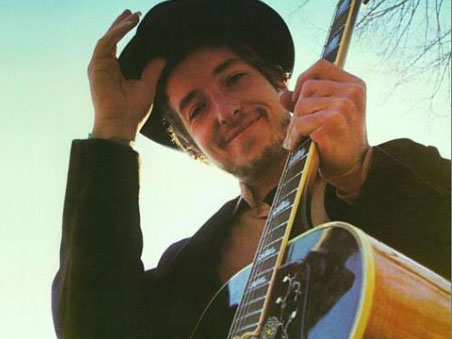BLOG: It's only words...
Following on from the recent MusicRadar tutorial that included 24 valuable lyric-writing tips, here are a few more thoughts on the subject...

Want all the hottest music and gear news, reviews, deals, features and more, direct to your inbox? Sign up here.
You are now subscribed
Your newsletter sign-up was successful
Following on from the recent MusicRadar tutorial that included 24 valuable lyric-writing tips, here are a few more thoughts on the subject...
Find a starting point
Obviously, staring at a blank sheet of paper or computer screen can be a frustrating experience and even if you have a strong melody, it's difficult to write accompanying lyrics without knowing exactly what you are writing about in the first place.
An effective starting point may be an overheard phrase or the name of a place, event, or even a story in a newspaper - for example A Day In The Life by The Beatles - but anything that sparks off your inspiration will do nicely. In some ways, the more leftfield the starting point is the better. There are already enough songs in the world about losing your woman.
Be concise
Don't try to force too many words/syllables into a melodic line. Simple hooks are often the most successful. This may feel like dumbing down to an extent, but if you have commercial ambitions for your music then it's important to think of your audience.
Remember that for all the pointed politicised observation of a line like 'Systemised atrocities ignored as long as bilingual signs on view', it was the 'We don't talk about love/We only want to get drunk' hook from A Design For Life that propelled Manic Street Preachers to mainstream success in 1996. Some people singing along may have missed the subtext and prevailing theme of working class identity, but its success enabled the band to reach a much wider audience.
Interestingly, the song's opening line - 'Libraries gave us power' - was inspired by a public library sign in Newport, South Wales emblazoned with the motto 'Knowledge is power', linking back to the earlier advice on starting points/inspiration.
Avoid cliché or forced rhymes
Alright, so it was a massive hit imbued with a sentimentality that struck a chord with large sections of the British public in mourning following the death of a princess in 1997. But that doesn't excuse this truly howling succession of clichéd rhyme in the Robbie Williams/Guy Chambers-penned Angels: 'So when I'm lying in my bed/Thoughts running through my head/And I feel like love is dead/I'm loving angels instead.'
Want all the hottest music and gear news, reviews, deals, features and more, direct to your inbox? Sign up here.
Indeed, the death of Diana Princess Of Wales inspired even more heinous lyrical crimes when Elton John enlisted Bernie Taupin to re-write their 1973 hit Candle In The Wind.
Best selling single of all time it may be, but the central metaphor was much more fitting when applied to the life of Marilyn Monroe, the song's original inspiration. When viewed side by side, the 1997 version feels ham-fisted and laboured in comparison to the original.
Experiment with juxtaposition
Just because a song is in a major key and upbeat doesn't mean the lyrics necessarily have to mirror the mood. The Stone Roses were very good at combining a sugar-coated pop melody with lyrical bile.
Another trick worth trying is adding a new twist to a familiar phrase - e.g. Unbreak My Heart - or trick the audience into thinking that they are getting a fairly standard rock'n'roll lyric then surprise them with a more jarring pay-off, for example 'Come on over and do the twist/Overdo it and have a fit' from Nirvana's Aneurysm.
Collaborate with others
Let's face it, the Frog Chorus would never have seen the light of day on Lennon's watch. Collaborating with others when writing songs and lyrics not only offers you the benefit of a different mindset and a sounding board, but also, if egos can be put aside, the quality control level should be higher. Then there's always the litigation to look forward to further on down the line if you actually make it...
Finally, there's a strong argument to say that you should ignore all of this advice and go out on a limb. Who knows, you might even write an opening line as good as 'Punctured bicycle on a hillside desolate'. You'll certainly struggle to write anything much worse than this litany of rhyming misogyny from the multi-million selling Red Hot Chili Peppers.
Chris Vinnicombe worked with us here on the MusicRadar team from the site's initial launch way back in 2007, and also contributed to Guitarist magazine as Features Editor until 2014, as well as Total Guitar magazine, amongst others. These days he can be found at Gibson Guitars, where he is editor-in-chief.